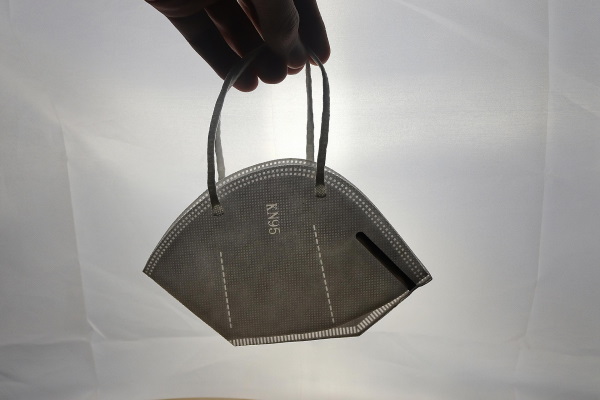
The global medical device business is increasingly susceptible to grey market threats of counterfeiting and diversion.
A worldwide pandemic put the spotlight on the supply chain and its fragility, while there was an alarming increase in counterfeiting everything from test kits and N95 masks to medical devices. Counterfeiting puts patients’ safety at risk, even when relatively inexpensive products and supplies are involved.
Online marketplaces facilitate counterfeiting and diversion. With their vast reach and lack of oversight, e-commerce platforms have become hotbeds for illegitimate practices. The sale of counterfeit and diverted medical products results in significant financial losses for manufacturers, jeopardizes patient safety and undermines trust in healthcare systems.
The contagion of counterfeit PPE
The COVID-19 pandemic provided a real-world case study of counterfeit medical supply flow. By June 1 2020, less than three months after lockdown, US Customs and Border Patrol reported the seizure of 750,000 counterfeit face masks and over a hundred thousand FDA-prohibited COVID-19 test kits. By February 2021, healthcare facilities across five states were found to have purchased millions of counterfeit face masks. Major hospitals, medical institutions, and government agencies alike were deceived into buying the fake protective equipment, according to the Department of Homeland Security.
A reactive approach only addresses issues after they have been discovered, or worse, caused harm, with far-reaching consequences. The adverse impact on business and reputation means decreased confidence in authenticity, lost sales, product recalls and increased threat of litigation. By contrast, proactive measures prevent problems.
Track and trace: Tips from the DSCSA playbook
One significant development in the fight against counterfeiting and diversion in the medical industry is the enactment of the Drug Supply Chain Security Act (DSCSA). Set to take full effect in November 2023, DSCSA has mandated a comprehensive system to track and trace the distribution of prescription drugs in the US.
Serialization assigns a unique, traceable identifier to individual units of a product. This identifier, often in the form of a barcode or QR code, allows each product to be tracked throughout its journey in the supply chain, from the manufacturer to the end consumer. DSCSA legislation is a crucial step towards a secure, interoperable and electronic system that provides transparency and accountability at each step of the pharmaceutical supply chain.
Although medical devices are not subject to the DSCSA, manufacturers can greatly benefit from adopting track and trace guidelines detailed in the legislation. These recommendations aim to ensure product authenticity by tracing the product’s journey from inception at the manufacturer all the way to the end consumer.
Another layer of product protection available to manufacturers is digital fingerprinting. This takes an established barcode on a package, analyses it through vision technology, and creates a unique digital identifier that can be authenticated anywhere with a smartphone. In a holistic product protection program, this digital layer can be a key element in the immediate discovery of counterfeit or diverted items.
Artificial intelligence and machine learning tools also aid in detecting anomalies in the supply chain, flagging potential cases of counterfeit products. They analyse vast amounts of data in real-time, helping to identify inconsistencies or irregularities that might suggest a problem.
DSCSA principles are an asset for medical device manufacturers
Supply chain technology can help medical device manufacturers streamline the manufacturing ecosystem and enhance product security. In an industry where counterfeit and diverted products create grave consequences for patient safety, manufacturers can't afford to ignore the advantages of implementing robust traceability systems. As mentioned, digital fingerprinting adds a layer of protection to help detect counterfeit products and bolsters a manufacturer's reputation for quality and safety.
In addition to enhancing supply chain integrity, adopting DSCSA guidelines provides valuable insights into a product’s life cycle and distribution patterns to facilitate strategic decision-making and proactive measures against counterfeiting and diversion threats. A holistic and interconnected supply chain ecosystem allows manufacturers to spot issues early and mitigate risks more effectively. This enhanced visibility, coupled with sophisticated analytics, can unveil valuable insights about product distribution, sales trends and consumer behaviour.
Ultimately, by implementing a sophisticated tracking system, medical device manufacturers are taking a significant step towards securing products, protecting brand reputation, and above all, ensuring the safety of patients.
The battle against counterfeiting and diversion calls for a multifaceted strategy that brings together legal actions, regulatory frameworks and proactive cooperation across the entire supply chain. Like the products themselves, the journey to secure the supply chain from counterfeit and diverted medical devices is continuous. It requires innovative technology, stringent legal enforcement and a proactive approach to ensure patient safety remains the top priority.

Steve Tallant is the Director of Solutions for Systech, Systech provides digital identification and traceability solutions that establish essential product data, ensure digital connectivity and enable real-time insights on the packaging line and throughout the supply chain.
©
SecuringIndustry.com





